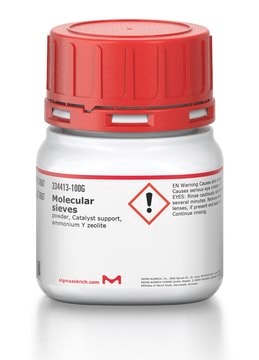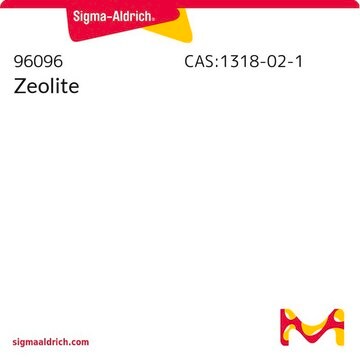추천 제품
Quality Level
분석
99.98% trace metals basis
형태
foil
autoignition temp.
860 °F
저항도
42.0 μΩ-cm, 20°C
두께
0.025 mm
bp
3287 °C (lit.)
mp
1660 °C (lit.)
density
4.5 g/mL at 25 °C (lit.)
응용 분야
battery manufacturing
SMILES string
[Ti]
InChI
1S/Ti
InChI key
RTAQQCXQSZGOHL-UHFFFAOYSA-N
일반 설명
Ti has low thermal and electrical conductivity. It is highly corrosion-resistant and has a high strength to weight ratio. A few angstroms thick layer of titania on the surface of Ti products makes its corrosion resistant.5 Ti foils could be employed as a substrate to grow arrays of hematite nanorods by hydrothermal method. A study reports pressure less sintering of SiC pieces and single crystals to Ti foils at 1500oC. Ti foil may be applied as an interlayer, diffusion bonded during the self joining of Si3N4. Si3N4/Ti-foil/Si3N4.
애플리케이션
- Medical Devices: Due to its biocompatibility, it is widely used in medical applications, such as in joint replacement implants, dental implants, and surgical instruments (Britannica).
- Corrosion Resistance: Its resistance to corrosion by both water and chemical media leads to its use in chemical processing industries for equipment like heat exchangers and reactors (Royal Society of Chemistry).
수량
280 mg = 50 × 50 mm; 1.1 g = 100 × 100 mm
Storage Class Code
11 - Combustible Solids
WGK
nwg
Flash Point (°F)
Not applicable
Flash Point (°C)
Not applicable
개인 보호 장비
Eyeshields, Gloves, type N95 (US)
시험 성적서(COA)
제품의 로트/배치 번호를 입력하여 시험 성적서(COA)을 검색하십시오. 로트 및 배치 번호는 제품 라벨에 있는 ‘로트’ 또는 ‘배치’라는 용어 뒤에서 찾을 수 있습니다.
Joining of silicon nitride with a titanium foil interlayer
Lemus J and Drew RAL
Materials Science & Engineering. A, Structural Materials : Properties, Microstructure and Processing, 352, 169-178 (2003)
Bonding mechanism between silicon carbide and thin foils of reactive metals
Morozumi S, et al.
J. Mater. Sci., 20(11), 3976-3982 (1985)
Large-Scale Porous Hematite Nanorod Arrays: Direct Growth on Titanium Foil and Reversible Lithium Storage.
Song Y et al.
The Journal of Physical Chemistry C, 114(49), 21158-21164 (2010)
Jinho Shin et al.
Journal of nanoscience and nanotechnology, 13(8), 5807-5810 (2013-07-26)
In this study, hydroxyapatite (HA) was coated on anodized titanium (Ti) surfaces through radio frequency magnetron sputtering in order to improve biological response of the titanium surface. All the samples were blasted with resorbable blasting media (RBM). RBM-blasted Ti surface
Jiangxue Wang et al.
Journal of nanoscience and nanotechnology, 13(6), 3874-3879 (2013-07-19)
Nanoscale materials (such as TiO2, hydroxyapatite nanoparticles) have gained much concern in the coating of implants for cell adhesion and growth to improve the osteoconductivity. However, due to attrition and corrosion, the wear particles would be generated from the joint
문서
Biomedical implants are essentially foreign substances within the human body that must survive many years’ exposure to demanding mechanical and physiological conditions. Despite these challenges, metal implants have been widely used to substitute for or rebuild hard tissues such as bones and teeth.
자사의 과학자팀은 생명 과학, 재료 과학, 화학 합성, 크로마토그래피, 분석 및 기타 많은 영역을 포함한 모든 과학 분야에 경험이 있습니다..
고객지원팀으로 연락바랍니다.


